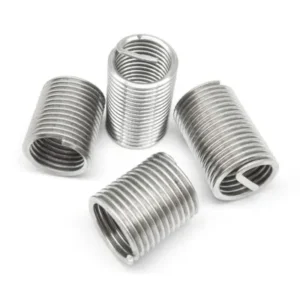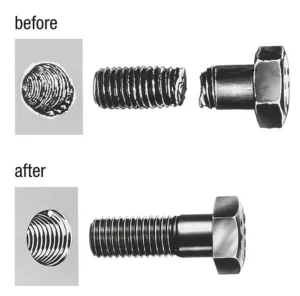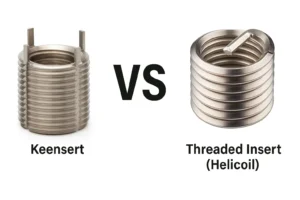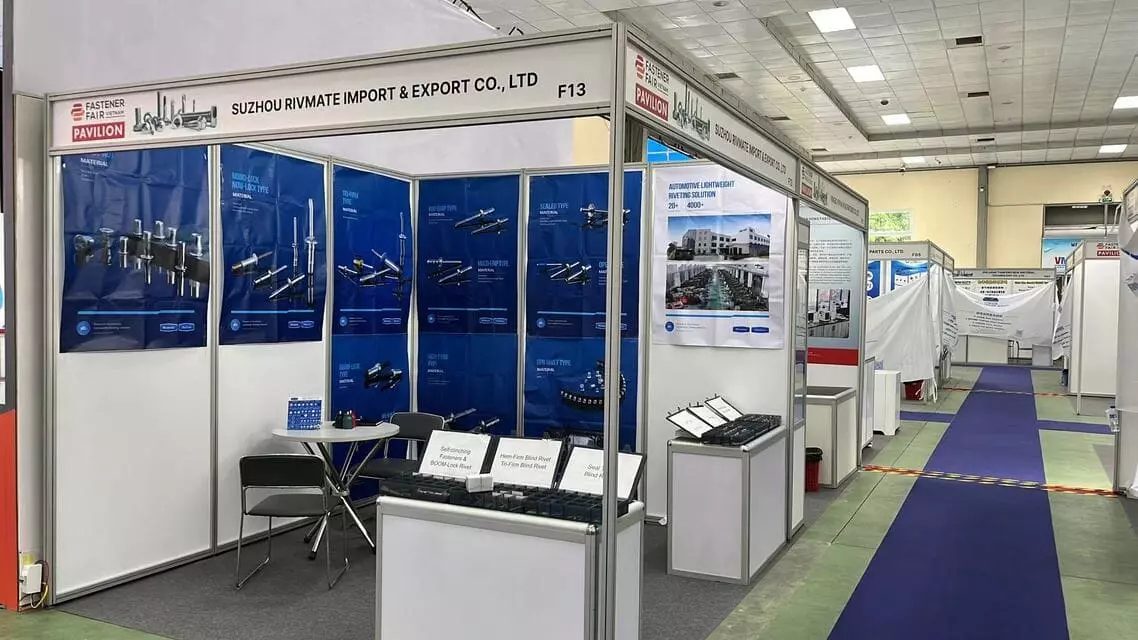Jack Nut vs Well Nut: What's the Difference?
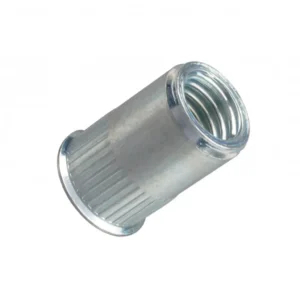
Leading Rivet Nut Manufacturer and Supplier in China
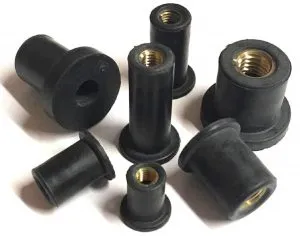
When choosing fasteners for various applications, understanding the difference between Jack Nut vs Well Nut is crucial. Jack nuts and well nuts create secure, threaded connections, but have distinct features for different use cases. Jack nuts suit softer materials like plastics and thin metals. Well nuts excel in applications requiring vibration resistance. This blog explores the key differences to help you choose the right option for your needs.
Table of Contents
Understanding Jack Nuts and Well Nuts

Jack nuts usually have a cylindrical structure with grooves on the outside. They will have a flange at the bottom for easy expansion during installation. Jack Nuts are usually installed in such a way that they expand or deform by external pressure, creating a strong threaded connection in a soft material. They are suitable for thinner or softer materials such as plastics, thin metals or composites.
- Shape: The exterior is fluted or textured and has a large flange face.
- Expansion mode: Expansion is achieved by compressing and expanding the outer wall.
Key Features
- Internal Threads: Provides a reliable anchor for bolts, screws, or other fasteners.
- External Expansion: Expands at the base during installation, securing the nut in place.
- Flanged Design: Prevents the jack nut from falling through the material once installed.
- Material Options: Available in materials such as steel, stainless steel, aluminum, and brass for different environmental and load requirements.
- Versatility: Works well with plastics, composites, and soft metals where traditional threading may cause damage.
- Installation: Can be installed using hand tools or pneumatic tools, providing flexibility in installation processes.
Pros of Jack Nuts
- Non-Destructive Installation: They prevent damage to materials, making them ideal for thin or soft materials.
- High Load Capacity: Jack nuts offer excellent load-bearing capabilities, especially in high-stress applications.
- Durable and Long-Lasting: Once installed, they provide a permanent, secure threaded connection.
- Easy to Install: Installation is quick and straightforward, requiring minimal equipment, which saves on labor time.
- Reusable: The bolts or screws can be removed and reinstalled multiple times without damaging the nut or the surrounding material.
Cons of Jack Nuts
- Limited Use in Thick or Hard Materials: Jack nuts are not suitable for thick or high-strength materials like steel without additional considerations.
- Expansion During Installation: The need for expansion during installation can sometimes cause slight distortion in softer materials.
- Higher Installation Costs: If specialized tools are required for installation, this can increase costs, particularly in large-volume applications.
- Material Compatibility: Not all jack nuts are suitable for every material, particularly those that are very brittle or subject to extreme conditions (e.g., high heat).
- Limited Strength Compared to Rivet Nuts: In high-strength applications (such as aerospace or heavy-duty manufacturing), rivet nuts may be more appropriate.
Well Nuts
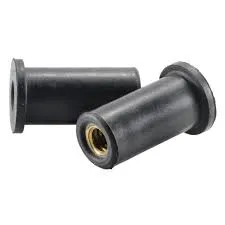
Well nuts have a cylindrical shape with a flanged base. Manufacturers make well nuts from rubber or soft plastic with an internal threaded metal insert. When a bolt or screw installs, the rubber body compresses around the edges. It expands outward to secure the nut in place. The flange acts as a stopper to prevent the well nut from pulling through the material.
Key Features
- Rubber Body: Provides a cushion that reduces vibration, absorbs shock, and prevents damage to the base material.
- Internal thread: allows bolts or screws to be inserted and fastened securely, ensuring a reliable connection.
- Flanged Design: Prevents the well nut from pulling through the material during installation and use.
- Easy installation: allows for use without special tools, making them versatile for various applications.
- Expansion upon installation: occurs as the bolt or screw tightens, ensuring a strong, tight fit without damaging the surrounding material.
- Vibration Resistance: The rubber body helps absorb shocks and vibrations, reducing the risk of loosening or damaging the material over time.
Pros of Well Nuts
- Shock and Vibration Absorption: Well nuts are ideal for applications where vibration resistance is needed, such as in automotive or aerospace.
- Non-Destructive: Prevents damage to thin or soft materials, allowing for secure fastening without compromising the integrity of the material.
- Ease of Installation: Simple installation process—no need for complex tools or machinery.
- Cost-Effective: Generally more affordable than other types of inserts or fasteners, making them an economical choice for many applications.
- Good for Sealing: The rubber body of the well nut can also help create a seal against dust, moisture, or other contaminants.
Cons of Well Nuts
- Limited Load Capacity: Well nuts are generally not suitable for high-load or heavy-duty applications.
- Durability Issues: Over time, the rubber material may degrade due to exposure to heat, UV light, or chemicals, reducing the longevity of the well nut.
- Not Suitable for Thick Materials: Well nuts are typically used for thinner materials and may not provide a strong enough connection in thicker materials like steel or heavy-duty metals.
- Potential for Over-Tightening: Tightening too much may damage the rubber, compromising the effectiveness of the well nut and its ability to secure the fastener.
Do You Have Any Questions?
Let Us Solve Your Problem
Compare Jack Nuts and Well Nuts in Specific Applications
People use both jack nuts and well nuts to create secure threaded connections in materials that are soft, thin, or prone to damage. However, they serve different needs based on their design, load capacity, and application characteristics. Below is a detailed comparison of their use in specific applications.
1. Automotive Industry

Jack Nuts
- Usage: Automotive applications use jack nuts to achieve high-strength fastening, such as attaching trim panels, interior components, or undercarriage parts to thin sheet metals or plastics.
- Reason: Jack nuts provide a strong and secure thread that can handle vibrations and repeated fastenings, making them suitable for structural parts in vehicles.
Well Nuts
- Usage: Automotive applications typically use well nuts to secure light fixtures, panels, or small trim pieces where vibration resistance is needed, but load-bearing strength is minimal.
- Reason: The rubber body of the well nut offers excellent shock and vibration resistance, making it suitable for less heavy-duty applications.
Conclusion
For heavy-duty automotive parts requiring higher load-bearing capacity, jack nuts are preferable, while well nuts are used for lighter, non-structural components where vibration resistance is crucial.
2. Aerospace Industry

Jack Nuts
- Usage: Jack nuts are used in aerospace applications for fastening interior panels, cabin components, or even in certain structural elements. The ability to securely fasten parts while maintaining the integrity of thin aerospace materials (like lightweight alloys and composites) is critical.
- Reason: The high-strength nature of jack nuts, which are capable of handling vibration and high-stress environments, makes them ideal for the aerospace industry.
Well Nuts
- Usage: Well nuts are sometimes used in non-critical applications in aerospace, such as securing non-load-bearing panels, light fixtures, or components in the cockpit or cabin area.
- Reason: The rubber body provides excellent shock absorption and vibration dampening in light-duty, non-structural parts.
Conclusion
In aerospace, jack nuts are used for demanding applications requiring high load capacity and durability, while well nuts are typically reserved for vibration-sensitive components in non-structural parts.
3. Electronics Industry

Jack Nuts
- Usage: In electronics, jack nuts are used for fastening circuit boards, covers, and enclosures to metal or composite frames. They offer a strong threaded connection without the need for complex machining or threading of the material.
- Reason: The ability to create a strong, permanent thread in materials like plastics or aluminum without damaging the substrate is key in electronics manufacturing
Well Nuts
- Usage: Well nuts are commonly used in the electronics industry for securing components like sensors, wiring, or light fixtures to panels or enclosures made from thin or soft materials like plastic or composite.
- Reason: Their ease of installation and vibration-dampening properties make them ideal for applications where the risk of thread stripping or material cracking is a concern.
Conclusion
In electronics, manufacturers favor jack nuts for high-strength, permanent fastening in enclosures, while they use well nuts for lighter-duty, vibration-sensitive applications.
4. Furniture and Appliances

Jack Nuts
- Usage: Jack nuts are frequently used in furniture manufacturing, especially for attaching legs, backs, or other structural elements to MDF, plywood, or thin metals.
- Reason: They provide strong, reliable threads without damaging or distorting the material, ensuring secure fastening in furniture parts subjected to wear and tear.
Well Nuts
- Usage: Well nuts are often used in appliance assembly and furniture applications for securing decorative pieces, light fixtures, or minor attachments to materials like plastic or composite boards.
- Reason: Their shock-absorbing properties help protect delicate materials from damage while ensuring the fasteners remain secure.
Conclusion
Jack nuts are the preferred choice for structural, high-strength fastening in furniture, while well nuts are ideal for non-structural, vibration-resistant applications.
5. Marine Industry

Jack Nuts
- Usage: Jack nuts are used in marine applications where secure connections are needed for metal panels, composite parts, or fixtures exposed to harsh environments and vibrations, such as boat interiors or external fittings.
- Reason: The high load-bearing capacity and resistance to corrosion in materials like stainless steel make jack nuts suitable for demanding marine applications.
Well Nuts
- Usage: Well nuts are typically used for securing lightweight components like fixtures, deck fittings, and non-load-bearing parts in boats or yachts.
- Reason: Their ability to absorb vibrations and prevent loosening due to water motion makes them ideal for non-structural marine applications.
Conclusion
In marine applications, manufacturers use jack nuts for load-bearing, high-strength connections, while they employ well nuts for vibration-dampening in lighter, non-critical components.
Select The Right Type For Each Application
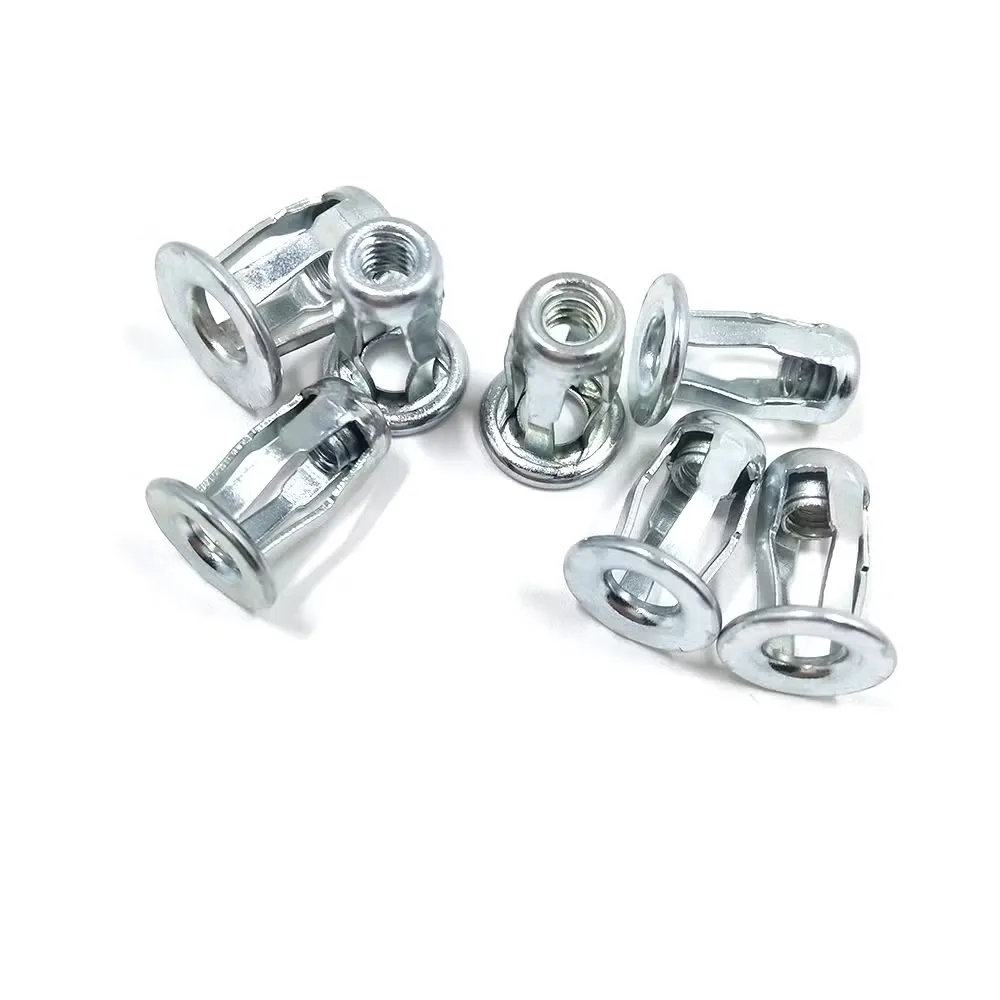
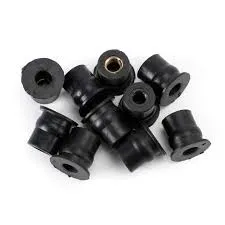
| Industry/Application | Best Nut Type | Reason |
| Automotive | Jack Nuts | High strength, secure threading for thin materials |
| Aerospace | Jack Nuts | Vibration-resistant, high-strength fastening |
| Electronics | Jack Nuts (high-strength) / Well Nuts (light-duty) | Secure threads for enclosures or vibration damping |
| Furniture & Appliances | Jack Nuts (structural) / Well Nuts (non-structural) | Strong fastening for furniture and light fixtures |
| Marine | Jack Nuts (structural) / Well Nuts (non-structural) | Corrosion-resistant, secure for high and low load |
| General Industrial | Jack Nuts (high-strength) / Well Nuts (light-duty) | Versatile for both high-strength and lightweight parts |
- Use Jack Nuts for high-strength, load-bearing applications requiring secure, long-lasting threads. They work well with materials prone to damage, like thin metals or composites.
- Opt for Well Nuts when vibration resistance and ease of installation are crucial. They work well in light-duty, non-structural applications.
Jack Nut vs Well Nut: Conclusion
Jack Nuts are ideal for heavy-duty applications requiring strong, durable threaded inserts, especially in materials like metals, plastics, and composites. They offer high load-bearing capacity, strength, and stability, making them perfect for industries like automotive, aerospace, and furniture. Their hollow structure allows for easy installation without damaging the surrounding material.
On the other hand, Well Nuts excel in providing sealing and vibration resistance, making them suitable for light-duty applications. Manufacturers often use well nuts in environments where sealing is more important than load-bearing strength, such as in automotive or HVAC systems. While they are easier to install, well nuts cannot withstand the same mechanical forces as jack nuts.
In conclusion, Jack Nuts are the better choice for structural applications requiring high strength, while Well Nuts are ideal for applications focused on sealing and vibration dampening.
Do You Have Any Questions?
Let Us Solve Your Problem
Rivetfix - We can provide the perfect fastener solution
Rivetfix offers a wide range of high-quality rivet nuts and jack nuts for various industries. We ensure durability, strength, and easy installation. Our fasteners create secure, reliable threaded connections in metal, plastic, composites, and fiberglass. Rivetfix provides custom solutions tailored to material compatibility. We are committed to exceeding customer expectations with exceptional performance and reliability.
Rivetfix - Leading Jack Nut Supplier in China
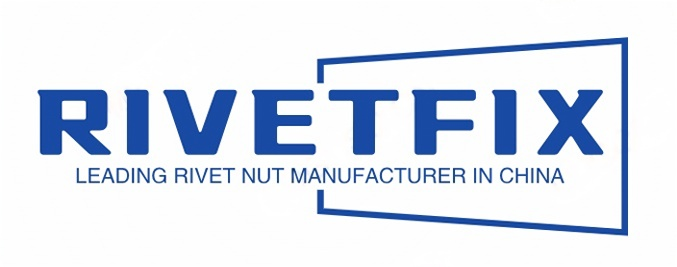
As a leading fastener manufacturer in China with more than 15 years in the industry, Rivetfix are committed to providing first-class quality fasteners and responsive services to the world.
Our commitment to quality, innovation, and customer satisfaction has established Rivetfix as a trusted partner for businesses seeking reliable fasteners. We prioritize the use of premium materials, cutting-edge technology, and rigorous quality control processes to ensure that our jack nuts meet international standards and exceed customer expectations. As a global supplier, Rivetfix offers competitive pricing and fast delivery, making us the ideal choice for your jack nut needs.
Contact us for project advice and the latest rivet nut quote!
Get High Quality Rivet Nuts Quote!
Send Your Rivet Nut Request
For more than 20 years, Rivetfix has helped customers solve many rivet nuts sourcing needs and technical challenges.
Have a question? Contact us and we’ll provide you with the perfect solution.

